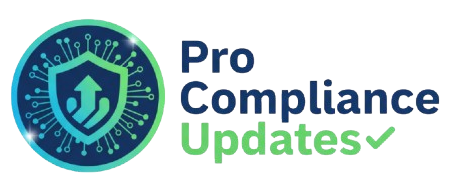This webinar will summarize the Sunshine Act or Open Payments Program requirements and provide practical solutions to the most common situations that are prevalent and necessary between sponsors and investigators.
The Sunshine Act or Open Payments Program requires manufacturers of drugs, medical devices, and biologics that participate in U.S. federal health care programs to report certain clinical investigator payments and items of value given to physicians and teaching hospitals. This Act was part of a healthcare reform bill adopted in March 2010. It came about due to requests for increased transparency about the financial relationships between physicians and the industry.
WHY SHOULD YOU ATTEND?
The Sunshine Act exposes the physicians and sponsors to new clinical trial reporting requirements and detail non-compliance which would lead to hefty fines. Templates for reporting format, exemptions to reporting requirements, and timelines for compliance and enforcement will be discussed.
AREA COVERED
Life science companies face the challenge of implementing the detailed reporting required by the Act as healthcare providers determine how to use their own data to anticipate public reporting of payments by life science companies to physicians and teaching hospitals.
This webinar will examine the implications of the Sunshine Act for healthcare providers and life science companies and discuss practical steps they can take to implement the Act and prepare for transparency.
- Purpose of the Sunshine Act
- Who is required to report under the Sunshine Act?
- What is reported?
- Exclusions
- Tracking
- Penalties
- Useful links
WHO WILL BENEFIT?
- Manufacturers of FDA-regulated products: Drug, Medical Device, and Biotech Companies
- Clinical Trial Professionals such as Project Managers, CRAs, Medical Writers
- Senior Management for Companies developing new products for the US market
- Regulatory Affairs Professionals
- People investing in FDA-regulated products intended for the US market
The Sunshine Act exposes the physicians and sponsors to new clinical trial reporting requirements and detail non-compliance which would lead to hefty fines. Templates for reporting format, exemptions to reporting requirements, and timelines for compliance and enforcement will be discussed.
Life science companies face the challenge of implementing the detailed reporting required by the Act as healthcare providers determine how to use their own data to anticipate public reporting of payments by life science companies to physicians and teaching hospitals.
This webinar will examine the implications of the Sunshine Act for healthcare providers and life science companies and discuss practical steps they can take to implement the Act and prepare for transparency.
- Purpose of the Sunshine Act
- Who is required to report under the Sunshine Act?
- What is reported?
- Exclusions
- Tracking
- Penalties
- Useful links
- Manufacturers of FDA-regulated products: Drug, Medical Device, and Biotech Companies
- Clinical Trial Professionals such as Project Managers, CRAs, Medical Writers
- Senior Management for Companies developing new products for the US market
- Regulatory Affairs Professionals
- People investing in FDA-regulated products intended for the US market
Speaker Profile
 Danielle DeLucy
Danielle DeLucy
Danielle DeLucy, MS, is owner of ASA Training and Consulting, LLC which provides Pharmaceutical and Biologics based companies with training and quality systems assistance in order to meet Regulatory compliance. Prior to this role, Danielle has been in the industry for 15 years serving in numerous Quality Management Roles, such as the Director of Product Quality, the oversight of Sterility Assurance practices and provided QA oversight of numerous filling and packaging operations. Danielle began her QA career as a Quality Control Pharmaceutical Microbiologist at a contract laboratory where she performed various tests for their clients. In the years after, she …
Upcoming Webinars

Leadership: Strategic Planning and Decision Making

Writing Techniques for Auditors and Risk Management Profess…

Language is Code - Intro to AI - Generative AI - ChatGPT an…

Gossip-Free: Leadership Techniques to Quell Office Chatter

Do's and Don'ts of Giving Effective Feedback for Performanc…

Women’s Hostility to Women at Work: Myth or Reality

4-Hour Virtual Seminar on Audit Proofing your Payroll Opera…

Do's and Don'ts of Documenting Employee Behaviour, Performa…


Retention Starts Here: Stop Losing Your Critical Talent and…


Practice Safe Stress ™: Preventing Burnout While Building R…

Impact Assessments For Supplier Change Notices

Cleanroom, Microbiology and Sterility Assurance Practices f…




Thriving in a Hybrid Workplace: Keys to Leadership and Team…

2-Hour Virtual Seminar on DeepSeek vs ChatGPT AI for CPAs a…

Understanding EBITDA – Definition, Formula & Calculation

FDA Regulation of Artificial Intelligence/ Machine Learning

Construction Lending And Real Credit Administration: Evalua…

Sunshine Act Reporting - Clarification for Clinical Research

How the OBBB Act will Impact Immigration Enforcement! Preve…


2-Hour Virtual Seminar on Outlook - Timesaving Tips and Tri…


Leadership Upskilling: Don’t Just Manage; Lead with Influen…

H-1B Visa Updates and Employer Strategies for 2026

Aligning Your HR Strategy with Your Business Strategy: A Ro…

HIPAA 2025 – Major Changes, Latest Rulings & Guidance

AI for Excel Professionals: Enhancing Productivity with Cha…

Dealing With Difficult People: At Work & In Life

Understanding Accounting for non - Accounting professionals



Excel Power Skills: Master Functions, Formulas, and Macros …
